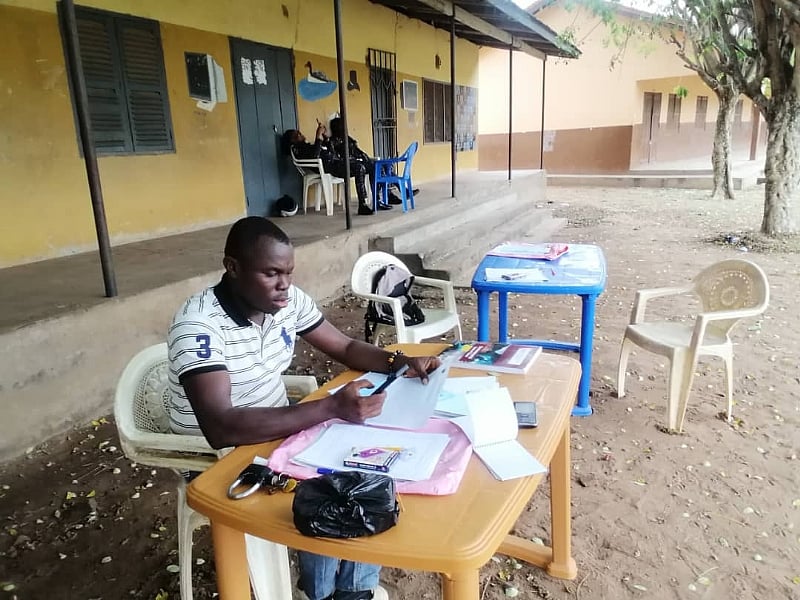The Electoral Commission (EC) has yet to make a decision regarding the proposal for an offline exhibition of the Provisional Voters’ Register at polling stations across the country. This topic came to light after the EC’s recent Inter-Party Advisory Committee Meeting held in Accra, where the commission expressed its plan to showcase the corrected Provisional Voters’ Register online as part of the necessary updates in anticipation of the upcoming December 7 elections. Following this announcement, there have been numerous requests from various stakeholders urging the EC to incorporate offline exhibitions. This would make it easier for voters in rural areas, as well as those lacking internet access, to participate in the electoral process and verify their details effectively.
During a press briefing aimed at educating journalists about electoral processes in Accra, Mr. Benjamin Bano-Bioh, the EC’s Director of Electoral Services, stated that the offline voter registration initiative is still being formulated. He clarified that the management team has not yet reached a final decision regarding the implementation of offline options for verifying voter registration details. The need for such an exhibition was highlighted in light of accessibility concerns, particularly for those who may struggle with online services due to technology limitations or geographic barriers. The EC will ultimately have to weigh these considerations before taking any form of action on offline exhibitions.
Mr. Bano-Bioh elaborated on the online exhibition format, emphasizing its benefits for registered voters, who will be able to check their names and polling station information for free via their mobile devices. He encouraged those eligible to take advantage of this service by dialing a specific code, 71151 #, when the online exhibition opens. This initiative aims to streamline the registration verification process, making it user-friendly for tech-savvy individuals while also drawing attention to the need for accessibility for others without reliable internet access.
Moreover, Mr. Bano-Bioh urged journalists to uphold fact-based reporting and prioritize obtaining accurate information directly from the Commission to counter misinformation and disinformation concerning electoral matters. The training session, coordinated by the Media Foundation for West Africa (MFWA), was part of a broader initiative aimed at strengthening media capacity for factual news dissemination, particularly in the context of elections when accurate reporting is crucial.
According to Mr. Kojo Impraim, Director of Media for Peace and Sustainable Development at MFWA, the objective of the training is to equip journalists with the tools necessary to hold authorities accountable and effectively amplify the voices of citizens. He stressed the importance of establishing fact-checking mechanisms within media outlets to verify the information shared during the electoral period. By doing so, media professionals can play a vital role in promoting electoral integrity and ensuring that the public receives accurate information throughout the electoral process.
The intersection of media responsibility and electoral processes is particularly significant in a time when misinformation can easily disrupt the democratic process. The EC, together with media organizations, will need to continue focusing on transparency and accessibility to enable all citizens to participate fully in the upcoming elections. As discussions about offline exhibition methods unfold, the EC’s engagement with its stakeholders will be critical in ensuring that the needs of the electorate—particularly those who may be disenfranchised by technological constraints—are addressed adequately and thoughtfully.














